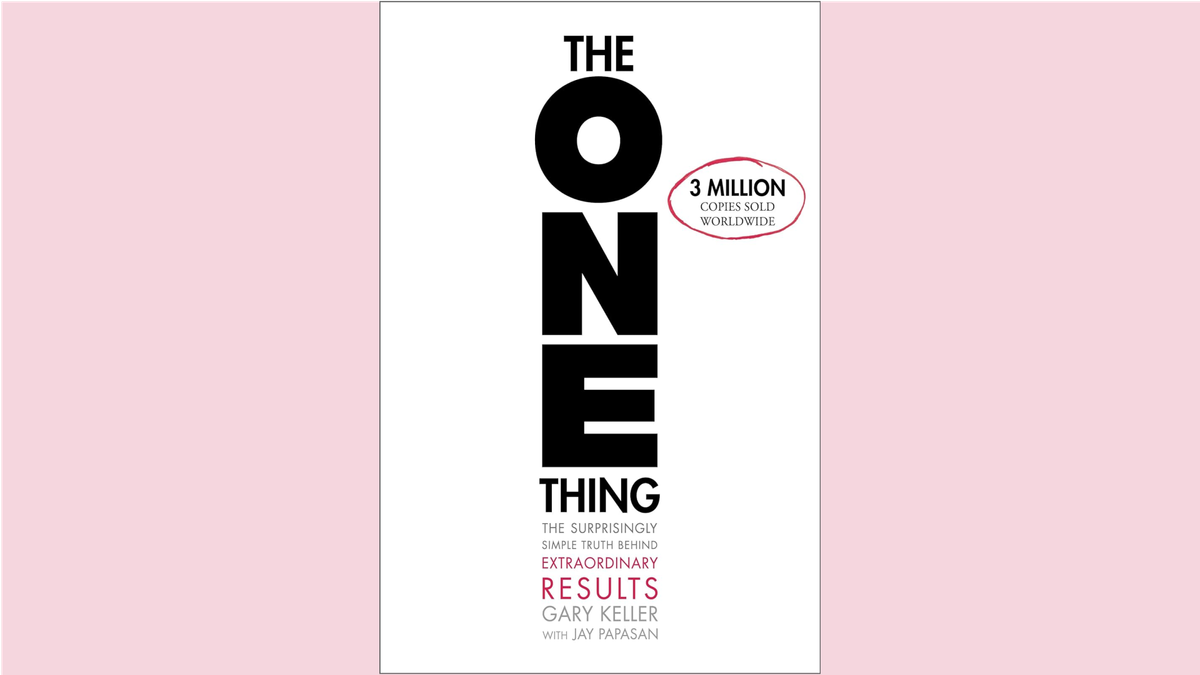6 Ways To Achieve Monumental Success: Align Vision And Execution
Discover six powerful strategies to align vision and execution, balance short-term needs with long-term goals, and achieve monumental success as a founder or CEO.

Success doesn’t happen by accident. It requires a delicate balance of big-picture thinking and day-to-day execution. For founders and CEOs, the challenge lies in staying true to your long-term vision while managing the constant demands of the present.
Over the years, I’ve discovered a key question that helps bridge this gap:
“What’s the one thing I can do, such that by doing it, everything else will be easier or unnecessary?”
This concept from Gary Keller’s The One Thing has transformed how I approach priorities and align my vision with execution. Here are six proven strategies for achieving monumental success.

1. Define a Clear and Inspiring Vision
Every outstanding achievement starts with a bold vision. Your vision is the North Star that guides every decision, every step, and every sacrifice.
Take President John F. Kennedy’s famous moonshot: “Land a man on the moon and return him safely to Earth by the end of the decade.” It was ambitious and specific, inspiring an entire generation to work toward a shared goal.
How to Do It:
• Simplify your vision into a clear, memorable statement.
• Make it big enough to inspire but grounded enough to act on.
• Share it widely to align your team and stakeholders.
I encourage founders to embrace the Big Hairy Audacious Goal (BHAG) concept. The more straightforward and compelling your vision, the easier it is to keep everyone on the same page.
2. Focus on Your One Thing
With countless priorities competing for your attention, it’s easy to get overwhelmed. That’s where the one thing question comes in:
“What’s the one thing I can do, such that by doing it, everything else will be easier or unnecessary?”
This forces you to focus on what truly matters. By identifying the most impactful action, you create a domino effect that makes other tasks fall into place.
How to Do It:
• Write down your ultimate goal.
• Identify the biggest bottleneck or challenge standing in your way.
• Commit to solving that challenge first before moving on.
I’ve found this question invaluable for sorting priorities. It keeps me from wasting time on busy work and focuses my energy on tasks that move the needle.
3. Build Time Into Your Calendar for Deep Work
Balancing long-term vision with short-term execution requires intentional time management. Without structure, it’s easy to get swept up in the chaos of emails, meetings, and distractions.
How to Do It:
• Use calendar blocking to reserve time for your “one thing” daily or weekly.
• Protect this time fiercely—no meetings, interruptions, or multitasking.
• Start with small blocks of focused time and expand as needed.
Calendar blocking is my daily non-negotiable. Whether strategizing for the future or solving a pressing challenge, dedicated time for deep work ensures I control my priorities.
4. Delegate and Automate Ruthlessly
You can’t do everything. Trying to will only burn you out and slow your progress. The key is to focus on what you can do and delegate or automate the rest.
How to Do It:
• Make a list of repetitive or low-value tasks.
• Assign them to team members or use tools to automate them.
• Regularly review your workload to identify new opportunities to offload.
Delegation has been a game-changer for me. It’s not just about freeing up time; it’s about empowering your team and creating space for strategic thinking.
5. Build an Agile and Reflective Culture
The best teams and companies aren’t rigid; they’re adaptable. But knowing when to pivot—or when to double down—requires regular reflection.
How to Do It:
• Incorporate journaling or team retrospectives to evaluate what’s working and what isn’t.
• Encourage flexibility without abandoning accountability.
• Celebrate learning from mistakes as much as successes.
Journaling has helped me spot patterns, recognize when something isn’t working, and decide when to change course. Reflection is where agility begins.
6. Communicate Insights Early and Often
Transparency isn’t just about sharing decisions; it’s about sharing the thought process behind them when your team understands the why behind your actions, they’re more likely to stay aligned and motivated.
How to Do It:
• Regularly share updates on your vision, progress, and priorities.
• Explain how short-term actions tie into long-term goals.
• Encourage two-way communication to ensure alignment.
I’ve learned that staying in your head doesn’t work. Over-communicating, even when it feels redundant, builds trust and keeps everyone moving in the same direction.
A Final Thought: Monumental Success Starts With Focus
Balancing vision and execution isn’t about doing everything—it’s about doing the right things. By focusing on your one thing, delegating effectively, and staying aligned with your vision, you create a system where short-term wins fuel long-term success.
So, ask yourself today: What’s the one thing I can do, such that by doing it, everything else will be easier or unnecessary?
Once you’ve answered that, block your time, rally your team, and get to work. Monumental success isn’t a distant dream—it’s a series of intentional, focused actions.


